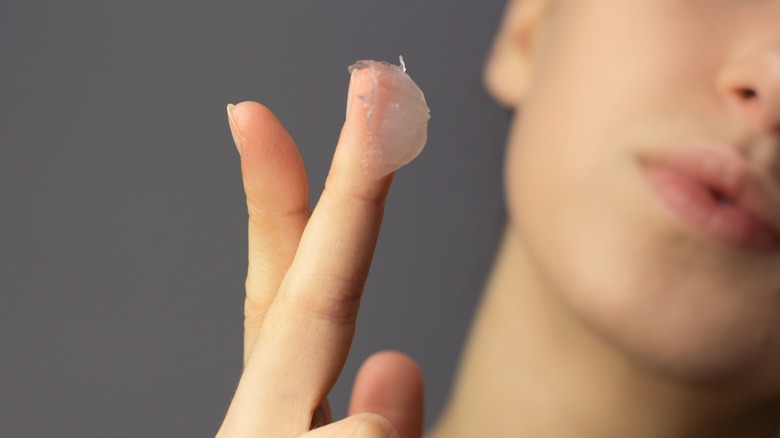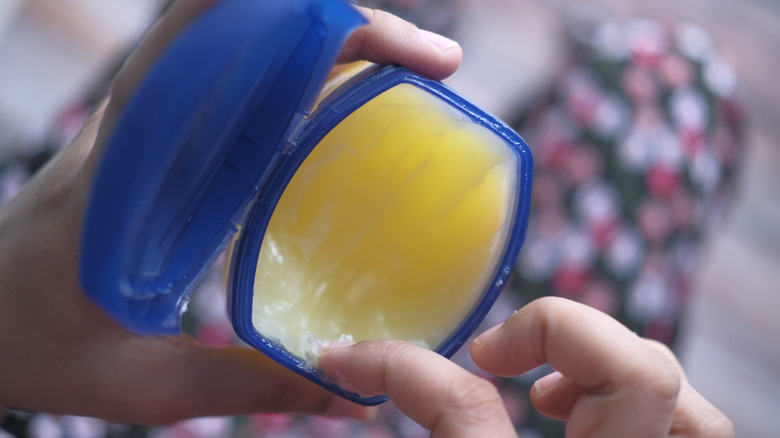Is It Safe To Use Vaseline In Your Nose?
Petroleum jelly has been around for quite some time — well over a century in fact (via Medical News Today). With its viscous texture, the product is said to provide relief for a variety of different skin issues, including eczema, diaper rash, wrinkles, chafing, dry skin, and more. While petroleum jelly doesn't hydrate skin in and of itself, it does work by preserving the moisture that's already there.
Vaseline is one particularly popular brand of petroleum jelly that has proven to be a fan favorite amongst consumers and physicians alike. "Vaseline is the holy grail in skincare for dermatologists," Dr. Onyeka Obioha, board-certified medical and cosmetic dermatologist, told Byrdie. Great for use on areas of the body that are prone to dry skin, such as the heels, knees, or elbows, many people also opt to use Vaseline on their faces. If used in excess, however, this can lead to clogged pores. Aside from clogged pores, however, are there other potential risks to using Vaseline on our sensitive facial skin? More specifically, what about on the insides of our nostrils?
A minor risk of respiratory issues
While unrefined petroleum jelly may possess potentially harmful chemicals, refined petroleum jelly, such as Vaseline, is considered safe for use, as per Medical News Today.
However, although the chances are slim, layering the insides of our nose with Vaseline may pose possible respiratory issues over time, explains Dr. Lawrence E. Gibson via Mayo Clinic. Vaseline applied to the insides of our nostrils will often inevitably make its way down our throat along with mucus. While rare, small traces of the product may find its way into our windpipe or lungs. Over time, these smaller amounts of petroleum jelly can accumulate, potentially leading to lipoid pneumonia. The condition is characterized by severe swelling and inflammation of the lungs and can sometimes cause symptoms such as chest pain, cough, or shortness of breath. To treat the condition, the patient will need to cease their use of Vaseline.
Alternative products to use
As previously mentioned, Vaseline is not considered to be a harmful product. Naturally, however, using any product around the face can increase the risk of ingestion, which experts at Mount Sinai say can be harmful if Vaseline is swallowed in large amounts. Additionally, although rare, some people may also experience an allergic reaction to Vaseline (via Healthline).
If you're interested in trying something different to alleviate nasal dryness, consider using a vaporizer or humidifier as an alternative to Vaseline. These products can help relieve the discomfort of nasal dryness by adding moisture to the air. Additionally, try picking up an over-the-counter saline nose spray from your local drugstore. These sprays can help clear the nasal passages by flushing our nostrils with moisture and breaking down any stuck dry mucus. When used correctly, these products can help keep the inside of our nose feeling comfortable and clear.



